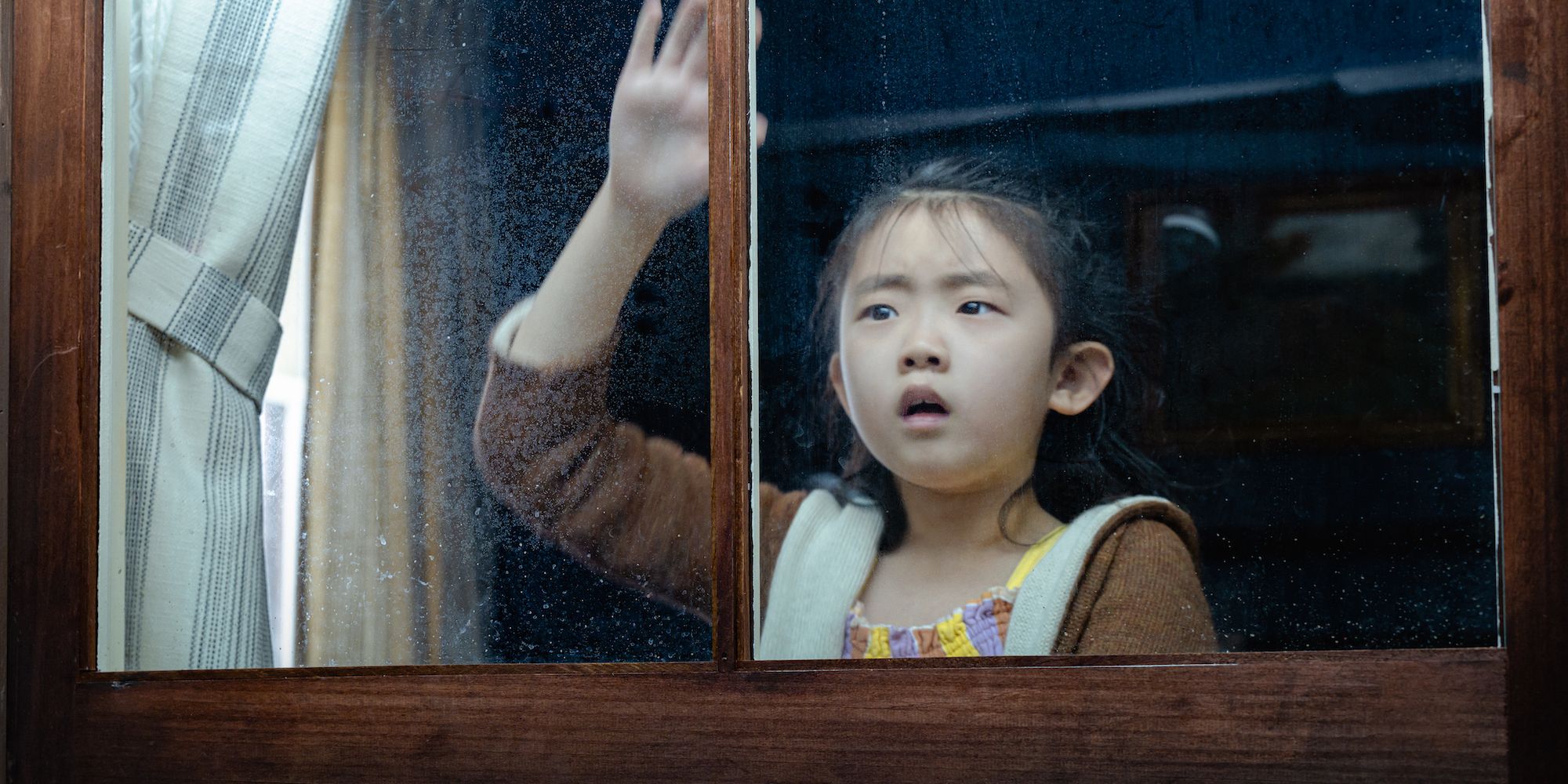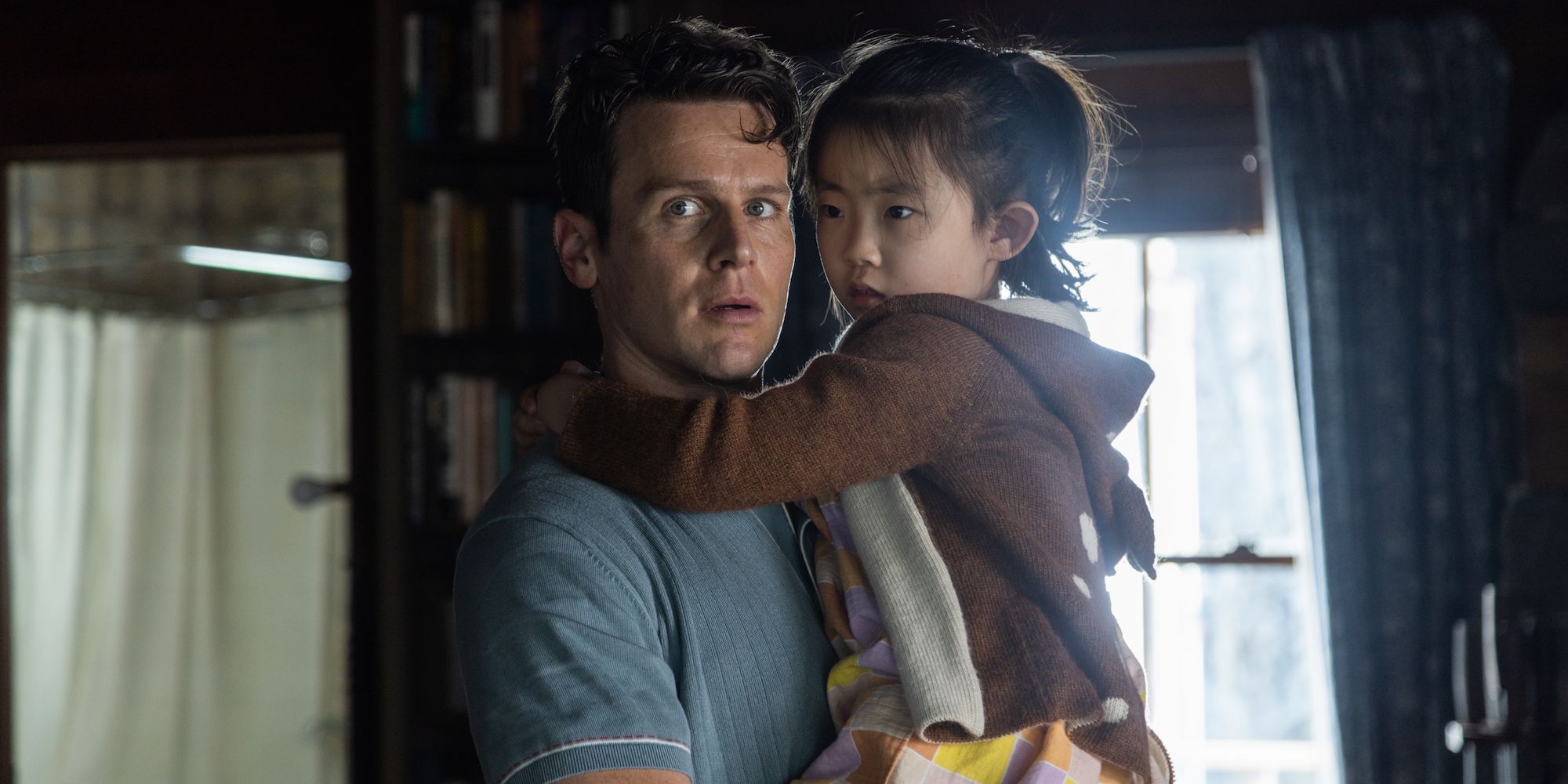[ad_1]
M. Night Shyamalan is known for saving his big twists until the end, and Knock at the Cabin’s best one came right from the book it was based on.
Warning: Spoilers for Knock at the Cabin ahead.
Though it largely follows the story of the book Cabin at the End of the World by Paul Tremblay, M. Night Shyamalan’s Knock At The Cabin would’ve been even better with the book’s ending twist. After his last original film Old failed to satisfy audiences, Shyamalan adapted the novel centered on an apocalyptic home invasion. When Andrew (Ben Aldridge) and Eric (Jonathan Groff) take their daughter Wen (Kristen Cui) to a cabin for a family vacation, they become the target of four strangers, Leonard (Dave Bautista), Sabrina (Nikki Amuka-Bird), Redmond (Rupert Grint), and Adriane (Abby Quinn) who tell them that if one of them doesn’t willingly sacrifice themselves, the world will end.
Andrew, Eric, and Wen are faced with a truly impossible choice from an unspeakably horrible position; if they choose to not sacrifice one of their trio, one of the visitors will be killed until the apocalypse is inevitable. Shyamalan is known for twists in The Sixth Sense and Signs, but even with the greatest twist of all right in the source material, he chooses an alternate ending. The love the family has for each other weighed against the fate of the world, forcing one of them to decide if the needs of the many outweigh the needs of the few would have been so much more impactful if the book’s sacrifice had been kept.
The Daughter Should Have Been The One To Die, Not Eric
In the novel, a scuffle between captives and captors over a gun results in Wen getting accidentally killed, which doesn’t satisfy the “rules” of the sacrifice and should have been left in the movie as the gut-wrenching twist that it is. The apocalypse still happens because she didn’t willingly give her life for humanity, meaning that Andrew and Eric have a choice; one of them can make the sacrifice, leaving the other completely alone, or they can wander the world as the last survivors in a dystopian wasteland. Instead of the two men refusing to engage in the conundrum, Shyamalan alters the ending so that Eric makes the decision to sacrifice himself.
The novel makes the apocalypse much more ambiguous, and the central characters in Knock at the Cabin cut off in the cabin have no way of truly knowing if the world will end as a result of their decision or not. Keeping Wen’s death in the movie would have allowed Andrew and Eric to feel the full brunt of the world’s unfairness, the ephemeral nature of fate, and how the world’s cruelty to them as a same-gender couple extended to their daughter’s tragedy. It would have made their decision to take their chances with the apocalypse seem real and earned, but Shyamalan seemed more concerned about if it made them seem selfish.
Knock At The Cabin’s Original Twist Would Have More Weight & Been More Shocking
By changing Knock at the Cabin‘s original twist, the movie’s ending isn’t nearly as impactful or shocking. In fact, it completely changes the message and themes of Tremblay’s book. In an effort to fix a problem unique to Shyamalan films, the ending is tied up explicitly; Eric sacrifices himself and Andrew and Wen stumble out into a world just as the apocalypse has ended. By Eric being the one to sacrifice himself, he embodies turning the other cheek by protecting a world that treated him badly while dismissing Andrew’s perspective that they should look out for one another because the world never has.
Not only would Wen’s death have been shocking, the fact that it was senseless and didn’t even satisfy the requirements of the “Four Horsemen” would have made for a better twist. Then, after all the visitors were dead, Andrew and Eric would have headed into the unknown to determine whether one of them should kill the other if it dooms whoever survives to grieve forever. For someone who loves an end that raises more questions than it answers, Shyamalan eschewed the thought-provoking ending that was right in front of him in favor of something more sanitized and unoriginal than Knock at the Cabin’s source material.
[ad_2]
Source link



